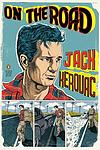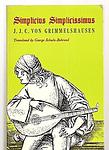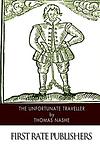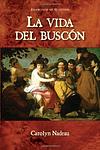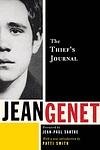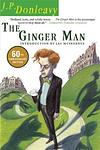The Greatest "Picaresque" Books of All Time
Click to learn how this list is calculated.
This list represents a comprehensive and trusted collection of the greatest books. Developed through a specialized algorithm, it brings together 284 'best of' book lists to form a definitive guide to the world's most acclaimed books. For those interested in how these books are chosen, additional details can be found on the rankings page.
Genres
Picaresque is a genre of literature that typically features a rogue or anti-hero as the protagonist, who travels through various adventures and misadventures, often encountering a diverse cast of characters along the way. These stories are often humorous and satirical, and are known for their episodic structure and lack of a traditional plot. Picaresque novels are often set in the lower classes of society and provide a commentary on social issues of the time.
Countries
Date Range
Reading Statistics
Click the button below to see how many of these books you've read!
Download
If you're interested in downloading this list as a CSV file for use in a spreadsheet application, you can easily do so by clicking the button below. Please note that to ensure a manageable file size and faster download, the CSV will include details for only the first 500 books.
Download-
1. On the Road by Jack Kerouac
This novel follows the story of a young man and his friend as they embark on a series of cross-country road trips across America during the late 1940s and early 1950s. The protagonist, driven by a desire for freedom and a quest for identity, encounters a series of eccentric characters and experiences the highs and lows of the Beat Generation. The narrative is a testament to the restlessness of youth and the allure of adventure, underscored by themes of jazz, poetry, and drug use.
-
2. Tristram Shandy by Laurence Sterne
The novel is a humorous, rambling narrative that chronicles the life of Tristram Shandy. The story is filled with digressions, anecdotes, and eccentric characters, as Tristram often interrupts his own tale to interject commentary or to recount stories from his family's past. Despite the seemingly haphazard structure, the novel is a clever exploration of narrative form and a satirical critique of traditional biographies and novels.
-
3. A Confederacy of Dunces by John Kennedy Toole
The novel is a comedic satire set in New Orleans in the early 1960s, centered around Ignatius J. Reilly, a lazy, eccentric, highly educated, and socially inept man who still lives with his mother. Ignatius spends his time writing a lengthy philosophical work while working various jobs and avoiding the responsibilities of adulthood. The story follows his misadventures and interactions with a colorful cast of characters in the city, including his long-suffering mother, a flamboyant nightclub owner, a beleaguered factory worker, and a frustrated hot dog vendor.
-
4. The Adventures of Augie March by Saul Bellow
"The Adventures of Augie March" is a novel set in Chicago during the Great Depression. The story follows the life of Augie March, a poor but spirited boy growing up in a broken home, as he navigates his way through life. The narrative explores his various jobs, relationships, and adventures, as he constantly seeks his identity and place in the world. His journey is marked by a series of encounters with different people and experiences, each shaping him in unique ways.
-
5. Amerika by Franz Kafka
This novel tells the story of a young immigrant, Karl Rossmann, who after an unfortunate incident is sent by his parents to America. The narrative follows his journey through a strange new world, where he encounters a variety of eccentric characters and experiences a series of bizarre and often surreal situations. Throughout his journey, the protagonist struggles with feelings of alienation and the harsh realities of the American Dream, while trying to navigate the complexities of life in a foreign land.
-
6. Jacques the Fatalist and His Master by Denis Diderot
The novel follows the adventures of Jacques and his master, exploring their philosophical discussions on life, fate, and free will. Jacques believes that everything that happens is predestined, while his master argues for the existence of free will. Their journey is filled with comical and absurd situations, unexpected twists, and intriguing stories within stories. The narrative structure is innovative and playful, often breaking the fourth wall and questioning the nature of storytelling itself.
-
7. The Life of Lazarillo de Tormes by Unknown
"The Life of Lazarillo de Tormes" is a novel that follows the life of Lazarillo, a boy of humble origins from Salamanca, Spain, who becomes an apprentice to a series of masters, each representing different aspects of society. The narrative is a critique of the hypocrisy and corruption of the Spanish society of the time, especially the clergy. Lazarillo's experiences and the lessons he learns, often through deception and trickery, serve as a social and moral commentary on the world around him. The novel is considered one of the pioneers of the picaresque genre.
-
8. Suttree by Cormac McCarthy
Set in 1950s Knoxville, Tennessee, the novel follows the life of a man who has renounced his former existence of privilege to live among society's outcasts on the river. He is an educated man, who has chosen a life of fishing and surviving on the fringes of society. The narrative is filled with his encounters with various characters from the underbelly of the city, including criminals, prostitutes, and other outcasts. Despite his attempts to isolate himself, he finds himself drawn into the problems and tragedies of those around him.
-
9. Don Juan: A Poem by Lord Byron
This epic satirical poem tells the story of Don Juan, a handsome, charming young man from Spain who gets into various adventures and romantic escapades throughout Europe and the Ottoman Empire. Throughout his journey, he encounters a variety of characters, including pirates, sultans, and aristocrats, while also engaging in numerous love affairs. The narrative, filled with humor, irony, and social commentary, serves as a critique of societal norms and conventions, particularly those related to love and morality.
-
10. The Sot-Weed Factor by John Barth
"The Sot-Weed Factor" is a satirical, picaresque novel set in the late 17th century, revolving around an innocent poet from London who is tricked into becoming a tobacco sot-weed factor in Maryland. The protagonist's misadventures, filled with mistaken identities, pirates, Native Americans, and a wide array of eccentric characters, mirror the challenges and absurdities of America's early colonial period. The narrative, rich in historical detail and parody, explores themes of identity, truth, and the nature of reality.
-
11. Joseph Andrews by Henry Fielding
This novel follows the journey of a young man named Joseph Andrews who travels across England to reunite with his true love, Fanny Goodwill. Along the way, he faces various obstacles and meets a variety of characters, including his mentor Parson Adams. The narrative satirizes various aspects of 18th-century society, including class distinctions, sexual morality, and the hypocrisy of the church. The story is both comedic and dramatic, combining elements of adventure, romance, and social commentary.
-
12. Simplicius Simplicissimus by Hans Jakob Christoffel von Grimmelshausen
"Simplicius Simplicissimus" is a satirical novel set during the Thirty Years War in Germany. It follows the life of the protagonist, a naive and simple peasant boy, who is forced to become a soldier. As he journeys through the war-torn land, he encounters various adventures and misadventures, and through these experiences, he gradually loses his innocence and gains a deeper understanding of the world and human nature. The book offers a poignant critique of war and society, highlighting the absurdity and brutality of the human condition.
-
13. The Unfortunate Traveller by Thomas Nashe
"The Unfortunate Traveller" is a picaresque novel that follows the adventures and misadventures of a young man named Jack Wilton, who goes through various escapades across Europe during the reign of Henry VIII. As a page to the Earl of Surrey, Jack encounters a variety of characters and experiences, including wars, imprisonment, and love affairs. The novel is notable for its vivid depiction of the social and political conditions of the time, as well as its pioneering use of the English language.
-
14. El Buscón by Francisco de Quevedo
"El Buscón" is a picaresque novel that tells the story of Pablos, the son of a thief and a witch, who aspires to be a gentleman despite his low birth. The narrative follows Pablos's adventures as he navigates through various social classes in 17th-century Spain, from his impoverished childhood to his failed attempts to gain wealth and status through deception and trickery. The novel is a satirical critique of Spanish society, highlighting the corruption and hypocrisy of the nobility and the church.
-
15. The Adventures Of Roderick Random by Tobias Smollett
This novel follows the tumultuous life of its eponymous protagonist, a young man of mixed fortune who embarks on a series of adventures across the seas and through various countries. Born to a gentlewoman and a disinherited gentleman, he faces the harsh realities of poverty and social injustice from an early age. After enduring a difficult childhood and an apprenticeship to a cruel surgeon, he joins the navy, where he encounters a colorful cast of characters and experiences the brutality of naval warfare. His journey is marked by romance, friendship, and a quest for retribution, as he navigates the complexities of 18th-century society, seeking to overcome the obstacles of his birth and fortune to secure a place for himself and his loved ones.
-
16. Satyricon by Petronius
The book in question is a satirical Roman work that provides a vivid, episodic portrayal of the decadent society during the reign of Nero. It follows the misadventures of the narrator and his companions as they navigate a world of excess, corruption, and hedonism. Through a series of events ranging from banquets to shipwrecks, the narrative offers a critique of the moral decay of Roman society, using humor, irony, and the perspective of characters from various social strata. The fragmented nature of the surviving text adds to its enigmatic and chaotic depiction of the period's social mores.
-
17. The Thief's Journal by Jean Genet
The book is a fictionalized account of the author's experiences in the criminal underworld of early 20th-century Europe. It is a narrative that delves into the life of a man who embraces his identity as a thief and a homosexual, exploring the intersections of crime, sexuality, and social defiance. The protagonist navigates through various relationships with fellow outcasts and criminals, while also confronting the moral codes of society. The work is known for its poetic and introspective prose, as well as its exploration of themes such as betrayal, freedom, and the search for beauty within the margins of society.
-
18. Guzmán de Alfarache by Mateo Alemán
"Guzmán de Alfarache" is a picaresque novel that follows the life of the protagonist, Guzmán, a rogue who recounts his life story from his humble beginnings to his eventual downfall. Through his narrative, he provides a moralizing commentary on various aspects of Spanish society in the 16th century. The book explores themes of morality, religion, and social criticism, and is considered a precursor to the modern novel.
-
19. The Life & Adventures Of Don Pablos, The Sharper by Francisco de Quevedo
The book is a picaresque novel that follows the life of Don Pablos, a man who aspires to rise above his lowly birth and become a gentleman. The narrative, rich in satire and social commentary, details Pablos' adventures and misadventures as he engages in various schemes and cons, often with a humorous and ironic tone. Through his journey, Pablos encounters a cast of characters from different strata of society, exposing the vices and follies of the time. His quest for social elevation is fraught with setbacks, reflecting the rigid class structures and moral hypocrisies of the era.
-
20. The Adventures and Misadventures of Maqroll by Alvaro Mutis
"The Adventures and Misadventures of Maqroll" is a collection of seven novellas that follow the life of Maqroll, a seafarer and adventurer. The stories, set in various locations around the globe, are filled with philosophical musings, poetic language, and vivid descriptions of exotic locales. Maqroll's encounters with a host of characters, from pirates to prostitutes, and his experiences with love, loss, and loneliness, all contribute to a richly textured narrative that explores the human condition and the nature of existence.
-
21. The History Of Pompey The Little by Francis Coventry
This novel offers a satirical glimpse into 18th-century English society through the eyes of an observant lapdog named Pompey. Born to a common mother, Pompey's adventures begin when he is adopted by a series of owners from various strata of society, including a coquette, a nobleman, and a scholar, among others. Through Pompey's journey, the book humorously critiques the follies and vices of the people he encounters, using the canine protagonist's perspective to offer a unique, and often amusing, commentary on the social mores and customs of the time. The narrative serves as a vehicle for satire, employing wit and irony to examine human nature and social hierarchies.
-
22. The History Of Gil Blas Of Santillana by Alain-René Lesage
This classic picaresque novel follows the adventures and misadventures of the young Spaniard, Gil Blas, as he navigates through the ups and downs of life, from poverty to wealth, from servant to nobleman, across the varied landscape of 17th-century Spain. Through a series of engaging episodes, the protagonist encounters a wide array of characters, from rogues and thieves to honest men and true friends, experiencing firsthand the vices and virtues of humanity. The narrative, rich in satire and social commentary, humorously critiques the corruption and folly of society, while also exploring themes of fate, ambition, and morality. Through Gil Blas' journey, the reader is offered a vivid and entertaining portrait of Spanish life and culture during the period.
-
23. The Ginger Man by J. P. Donleavy
"The Ginger Man" is a novel that follows the exploits of Sebastian Dangerfield, a young American studying law in post-World War II Dublin. Dangerfield is a heavy-drinking, womanizing, and irresponsible character who constantly finds himself in trouble due to his reckless behavior. Despite his flaws, he is a charismatic and compelling character who navigates life with a unique blend of humor and cynicism. The book provides a vivid depiction of bohemian life in mid-20th century Dublin, with its struggles and joys.
-
24. The Reivers by William Faulkner
This novel is a humorous coming-of-age story set in the American South in the early 20th century. It follows a young boy who, along with two companions, steals his grandfather's car and embarks on an adventure to Memphis. Along the way, they encounter various characters and situations that challenge their morals and force them to grow up quickly. The journey serves as a metaphor for the loss of innocence and the harsh realities of adulthood.
-
25. Tortilla Flat by John Steinbeck
This novel is a humorous and poignant story set in the hills above Monterey, California, following the lives of a group of paisanos—poor, Hispanic men with a penchant for wine, freedom, and camaraderie. After one of them comes into possession of a house, the group forms a unique, albeit unconventional, household. Their adventures and misadventures, often fueled by their love for wine and their quest for dignity, paint a rich tapestry of loyalty and friendship amidst poverty. The narrative, deeply infused with warmth and a sense of community, explores themes of simplicity, happiness, and the human condition, making it a timeless exploration of the bonds that tie people together.
Reading Statistics
Click the button below to see how many of these books you've read!
Download
If you're interested in downloading this list as a CSV file for use in a spreadsheet application, you can easily do so by clicking the button below. Please note that to ensure a manageable file size and faster download, the CSV will include details for only the first 500 books.
Download